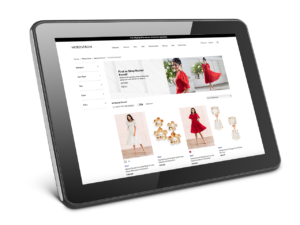Changes in the global environment for direct selling companies are happening rapidly on all fronts. Shifting consumer expectations, tighter regulations, increasing digital demands and new competitors are forcing us to examine ourselves inside and out—question who we are, what we’re about and how we want to move forward.
We can shrink from these challenges, or we can evolve. We can be resilient, innovative and bold. This will require new thinking and tough decisions, but it will position us to be even stronger. As the 2019 Global 100 list celebrates its tenth birthday, Direct Selling News examines how the industry has changed and what the landscape looks like as we head into the third decade of the 21st century as independent distributors.
First, the numbers
Collectively, the companies in the DSN Global 100 achieved $75.6 billion for 2018. Aggregate sales for the top 10 global companies on DSN’s Global 100 list were $40.8 billion in 2018. Twenty of the Global 100 grew by $100 million or more in the past year—including list toppers Infinitus, Natura, Herbalife Nutrition, Coway and Nu Skin. Newcomers O’Boticario and Atomy debuted at $1.22 billion and $1.5 billion, respectively. There are 23 mid-market companies—those between $300 million and $1 billion on this year’s ranking. Five companies are above $700 million, and another five above the half-billion-dollar mark.
“There are 23 mid-market companies—those between $300 million and $1 billion on this year’s ranking. Five companies are above $700 million, and another five above the half-billion-dollar mark.”
Eighteen companies are making their first appearance on the Global 100 list, including companies from Brazil, Korea, Taiwan, Germany, Malaysia, Japan and Sweden. The biggest gaps on the 2019 list, though, come from the absence of 25 of the 26 China-based companies that made the list last year and some U.S.-based companies—such as Mary Kay, Isagenix, AdvoCare and Juice Plus—that chose not to report their financials.
In response to some unsubstantiated product claims, the Chinese government in January launched a 100-day review of all health and wellness direct selling companies operating in China, the industry’s second-largest market. Because of the increased scrutiny, most Chinese companies were unwilling to disclose their financial information to the magazine. This left room for 18 newcomers to the list and seven companies returning to the list after an absence.
“Direct selling companies are spending millions to improve their online shopping portals, partly in response to the Amazon effect and partly because of regulatory pressure to distinguish more clearly between customers and distributors.”
The economic and regulatory conditions in a global marketplace always fluctuate, and sometimes companies will decide to keep a lower profile, which is why it’s noteworthy that this year’s list includes 13 private companies that have reported their numbers to the Global 100 every year since it began in 2009. Public companies don’t have a choice about whether to share financials, but closely held companies do, and their transparency allows the Global 100 to present as clear a picture of the industry as possible.
 Times, they are a changin’
Times, they are a changin’
The direct selling business and consumer habits have changed significantly over the last decade.
From a broad, cultural perspective, people now consider their involvement in a direct selling company in much the same way they consider any job. “The direct selling space is evolving from the days when it was sort of a niche way to do business,” says securities analyst Doug Lane. “Given advancements in technology and social selling, direct selling is becoming more mainstream.”
But nothing has changed in our industry more than the prevalence of technology. In the last 10 years ecommerce and social media—mainly Amazon and Facebook—have transformed the way people learn about and purchase products.
In 2009, there were 360 million active Facebook users worldwide. Now there are 2.38 billion—and a huge number of them turn to social media for brand guidance. And Forbes reports that 70 percent of Americans with annual incomes of $150,000 or more have Amazon Prime memberships, which give people unlimited free shipping (now in one day) of more than 100 million items.
Overall e-commerce sales in the United States reached $517 billion last year, 14 percent of all U.S. retail sales, according to analysis of U.S. Commerce Department data. Amazon sales alone were $141 billion of that total—accounting for nearly one-third of ecommerce revenue.
Direct selling companies are spending millions to improve their online shopping portals, partly in response to the Amazon effect and partly because of regulatory pressure to distinguish more clearly between customers and distributors. Direct sellers have to offer customers a way to buy product without signing up to become a distributor, and creating direct online ordering systems is the easiest way to do that. Such changes come more quickly for smaller, newer companies, Lane says. But the larger the business, the more legacy systems and mindsets there are to move. “That makes it a big challenge,” he says. “But that’s what leadership has to do.”
Some direct selling companies are meeting this challenge head-on, responding with complete digital transformations of customer and distributor experiences, says Bob Bass, Lead Strategic Insights Analyst for Amway, which tops the Global 100 list for the seventh consecutive year, with $8.8 billion in revenue. “Changes I’m seeing are monumental, from the way companies support distributors to the emerging use of augmented reality.”
Augmented reality is fueling a trend called “experiential retail,” which is, ironically, drawing customers back to brick-and-mortar stores. For example, Pottery Barn allows in-store customers to place virtual furniture in digital versions of their homes. Nordstrom shoppers can select clothing via a mobile app and the store will have the items waiting for them in a dressing room when they arrive. French beauty products retailer L’Occitane lets customers take a cyber hot air balloon ride through the French countryside while they get a hand massage with real hand cream.
“Customers and distributors want to be reached in ways that are most meaningful to them. Everything from attracting, developing and retaining more young leaders to honing in on what is marketed to different segments, so that your approaches are much more personal and relevant.” – Bob Bass, Lead Strategic Insights Analyst for Amway
If some of these experiences feel familiar, they should—they’re a next-gen version of what network marketing has been doing through the party plan model for decades: letting people try and build a connection with a brand before they buy. This trend reinforces the core of our model while showing us how to enhance that model at the same time.
Beauty and wellness products are prime for augmented reality, says a recent market study—so as the direct selling channel’s largest category, these products give the industry an opportunity to use the tool on a broad scale. Amway’s already on board. Last spring, it partnered with a Silicon Valley company to implement the YouCam Makeup app, which makes personalized skin care commendations and lets customers put virtual Artistry brand makeup on their selfies.
With YouCam, Amway seems to be proving that even massive companies can be technologically agile, if they’re committed. Amway Chief Sales Officer John Parker says it’s all about a forward-thinking mindset. “We encourage our employees to stay hungry and focused on what is still possible rather than what we have already achieved,” he says. “As an industry we embrace what’s great about our channel—the combination of digital and social relationships with the delivery of live interactions and experiences distributors and customers will never forget.”
Getting personal
As consumers become more sophisticated about how and where they buy, they’ve also become more particular about how they want companies to market to them. “Customers and distributors want to be reached in ways that are most meaningful to them,” Bass says. “This means everything from attracting, developing and retaining more young leaders to honing in on what is marketed to different segments, so that your approaches are much more personal and relevant.”
Noah Westerlund, Senior Vice President of Business Development for SUCCESS Partners, says this personal approach starts with making sure the audience you want and the audience you have are the same. “Be realistic about what your company provides, and do some audience research to find out if it’s what your intended targets really want,” he says. “Maybe you have a product that has always appealed to Baby Boomers but you keep pushing your teams to recruit and sell to Millennials.” If you’re losing or can’t gain momentum, a misalignment between your message and target customers may be partly why.
Parker says Amway’s strategy for keeping its momentum for so many years is to keep its ear close to the field. “We continually focus on listening to our Amway Business Owners, who are out there every day working with customers and new people in the business,” he says. “Like them, we know the importance of hard work, trying new approaches, studying others’ successes and failures and planning our next move, even when business is at its strongest.”
New frontiers
One ingredient and one concept that have burst into the marketplace in the last few years are putting our industry in an interesting juxtaposition: One is opening doors to astronomical sales, while the other is reminding us not to take our position for granted.
Let’s talk about hemp first. Products with cannabidiol (CBD)—a non-THC product derived from the cannabis plant—are becoming wildly popular for direct selling. DSN estimates that direct selling’s CBD revenue reached $300 million in 2018, will hit $600 million this year and will generate $1 billion next year.
At least 40 companies on this year’s Global 100 list sell products with CBD, and they’re seeing huge numbers. Four of them alone—including Las Vegas-base My Daily Choice/Hempworx and San Diego-based Kannaway accounted for $400 million of overall CBD sales last year. Sales at My Daily Choice/Hempworx increased from $10 million in 2017 to $100 million in 2018, a 900 percent growth rate.
While CBD has become the hot new category inside the industry, income opportunities with ride-share providers, on-demand errand services and private home rental companies are changing the game outside our industry, which used to have a lock on the “gig” idea.
According to a recent McKinsey Global report, more than 160 million people in Europe and the United States are earning money using cars, houses and time they already own. This is more than three times the 18.6 million U.S. direct sellers—4.1 million of whom are discount buyers or have no plans to sell the products and nine million of whom have gone inactive.
The lure of gigs is strong because they usually require little capital or training. You don’t need sales skills to be an Uber driver. You wake up, turn on your phone and customers fall out of the sky.
“If you’re losing or can’t gain momentum, a misalignment between your message and target customers may be partly why.” – Noah Westerlund, Senior Vice President of Business Development for SUCCESS Partners
Direct selling experts say that the industry can be competitive by appealing to people’s desire to work for more than just a paycheck. People want to be part of something with a greater purpose—they also will gravitate toward opportunities that provide support and ongoing training so that they can improve personally and professionally.
But we can’t keep doing everything the way we’ve always done it. For example, gig work pays on the spot and that’s a huge deal to its workforce. Direct sellers have to find ways of paying more quickly.
NuSkin, number seven on this year’s list with $2.68 billion in sales, introduced a new compensation strategy in late 2017 to allow for quicker payouts. Through NuSkin’s “Velocity” pay plan distributors can earn retail sharing bonuses daily when someone buys a product via their mobile app. “We found there was a fairly large group of people building a Nu Skin business because they needed income today, not six weeks, or even a week from now,” NuSkin President Ryan Napierski said at the 2019 Companies in Focus.
And about those customers “falling out of the sky?” Direct selling also needs to refine its process of distributing leads to field teams, Westerlund says. “That’s how we become an end-to-end solution that’s competitive with gig economy opportunities.”
 Being better
Being better
How do we maintain traction where we have it and regain it where we might have slipped?
We always need to recognize and build on what makes us unique—our high-quality research-based products, the opportunity we give people to change their lives in small and big ways and our deep commitment to the communities in which we do business.
It’s also critical for companies to acknowledge and correct for their blind spots and missteps, and that means doing a better job on compliance, income claims and product claims. Bass agrees. Transparency is everything in this industry, he says.
In January, the U.S. Direct Selling Association launched the Direct Selling Self-Regulatory Council to hold the industry even more accountable to ethical business practices. Administered by the Council of Better Business Bureaus, the SRC will monitor the marketplace for questionable activity, investigate consumer complaints and report potentially noncompliant companies to the appropriate government agencies.
“We know that direct selling has sometimes suffered from perceived problems, occasional bad actors and others who pretend to be legitimate,” said DSA President and CEO Joseph Mariano. “We have decided to address these issues directly, by holding companies to the highest standards with an effective third-party regimen.”
Says Bass, “It’s in our collective interest to call each other out and hold each other accountable for deceptive and dishonest speech.”
In addition to staying mindful of industry-specific changes, it’s important to note that the economy is likely nearing the end of a decades-long expansion cycle. It’s too soon to know how much of a slowdown we’ll experience, but slowdowns are inevitable. And maybe a more moderate pace is exactly what everyone needs to catch their breath and make plans for the next race.
$100 million+ non-reporting companies
In addition to the Chinese companies not reporting this year, several $100 million plus companies previously represented on our Global 100 list chose not to report their 2018 data.
| · ACN | · It Works! | · Melaleuca | · Premier Designs |
| · AdvoCare | · Juice Plus | · Neora (Nerium) | · SeneGence |
| · Beachbody | · Kyani | · New Avon | · Skaklee |
| · Cabi | · LegalShield | · Norwex | · Stella & Dot |
| · doTERRA | · Le-Vel | · Omnilife | · Sunrider |
| · Forever Living | · LuLaRoe | · Pampered Chef | · Thirty-One Gifts |
| · Isagenix | · Mary Kay | · Paparazzi |


